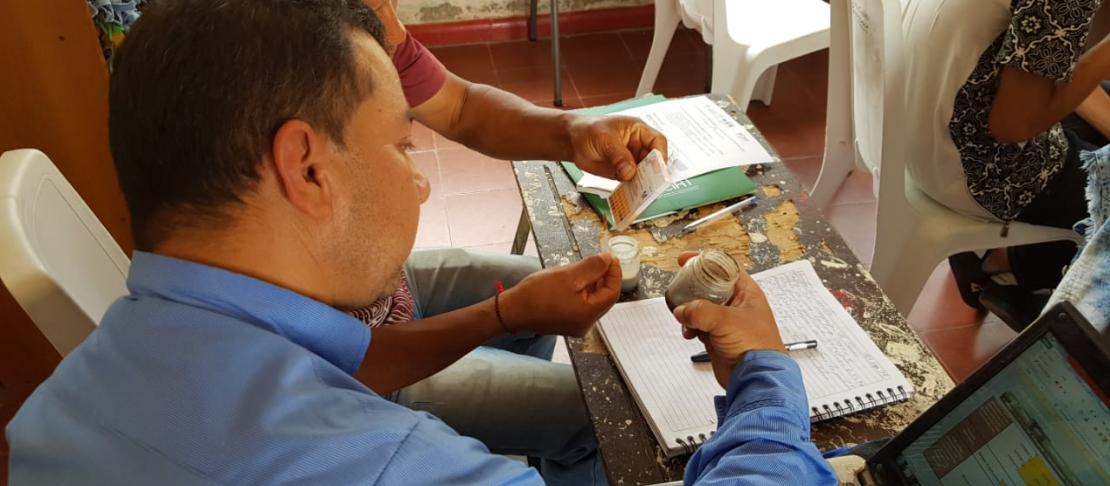Towards a digital climate-smart agriculture transformation in Latin America

Project Description
Climate-smart agriculture (CSA) can take advantage of the digital revolution using different digital tools to make agriculture more efficient, accountable while having a quicker adaptation to changing environments by harnessing the precision, rapidity, and consistency of data and analyzes.
That’s why we propose Digital CSA (D-CSA) as a result of the combination of CSA’s vision and the opportunities offered by digital tools. Through investment in digital agriculture, this project will enhance our capacity to fulfill the three dimensions of CSA: adaption, mitigation, and productivity.
The goal of this project is to support Latinamerican (LAM) farmers, rural advisory services and agricultural organizations with digital tools to cope with CSA challenges in the medium and long term. This time going beyond the identification of locally-relevant yield-limiting factors and rather use digital tools to support farmers, technicians’ researchers and policymakers with more actionable information. The project also envisions LAM farmers, rural advisory services and agricultural organizations using metrics reflecting carbon emissions/sequestration and water use efficiency performances of the agro-systems.
Activities
For the scaling- up of the project, we expect as major outputs:
- The connection with new agricultural organizations in 3 prioritized countries. We will build a personalized roadmap for each organization so that they know how to proceed towards D-CSA. We will also train the relevant staff for them to be autonomous. Those organizations are indispensable for the project to achieve meaningful results and to be able to reach out to small-medium farmers.
- Creation of spaces where Latin American organizations interested in or engaged with D-CSA can exchange knowledge, experience, and opportunities. They will include regional workshops, webinars and staff exchange.
Regarding the innovation part of the project, we expect three major outputs:
- Automatization of the analysis behind D-CSA. Although this is (and must be) invisible for the users, automatization is essential for the approach to scale-up. In fact, neither the International Center of Tropical Agriculture (CIAT, in Spanish) nor partner organizations have the capacity to run personalized analyses manually for thousands of farmers.
- Breakthrough in passive data capture methods. With such methods, we will alleviate low data availability in the developing countries, allowing the digital revolution to unfold in the developing world.
- Evaluation of methods enabling the integration of carbon sequestration and water use efficiency accounting in the D-CSA approach. The relevance and credibility of D-CSA depend on the integration of such metrics, in order to boost the development of a sustainable CSA in Latin America.
Expected Outcomes
- At least 3 agricultural organizations from 3 prioritized countries use D-CSA to provide their farmers with site-specific climate-smart options.
- Governments in at least 1 country and agricultural stakeholders in LAM consider D-CSA as a reference model for developing sustainable agriculture in a climate change context.
- At least 2 rural advisory services in LAM adopting D-CSA.
- 100 000 farmers from 3 prioritized countries assessed the environmental impacts of the different management options using D-CSA.
- At least one method assessed to estimate the carbon removal capacity of different management options.
- At least 6 agricultural organizations from 3 prioritized countries use D-CSA tools to reduce the negative externalities of LAM Agriculture.
- 1000 farmers manage their water consumption with information and benefit from the corresponding savings.
- Policy makers in at least one country use D-CSA information to define acceptable rage of water use efficiency per system.
Partners
Secretariat of Agriculture and Livestock (SAG) - Honduras
More information
Daniel Jimenez - d.jimenez@cgiar.org